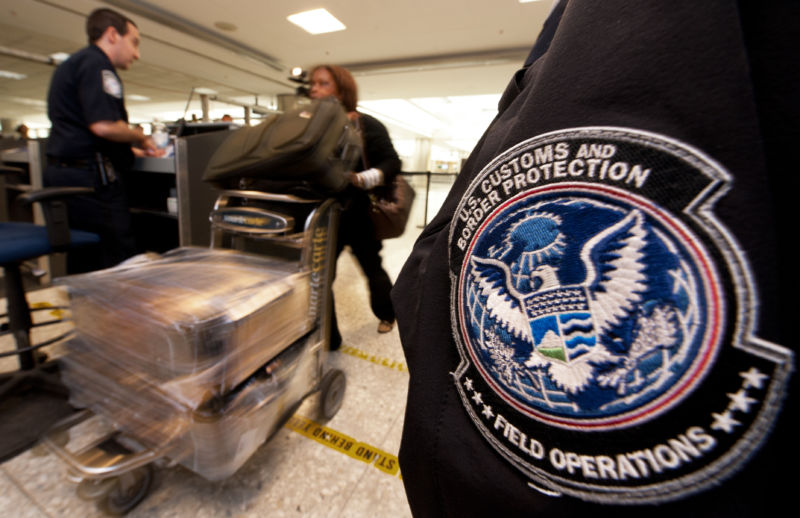Feds took woman’s iPhone at border, she sued, now they agree to delete data

Enlarge / An international air traveler is cleared by a US Customs and Border Protection Officer (L) and is approved to enter the United States inside the US Customs and Immigration area at Dulles International Airport (IAD) , December 21, 2011 in Sterling, Virgina, near Washington, DC. (credit: PAUL J. RICHARDS/AFP/Getty Images)
An American Muslim woman who two months ago asked a federal judge to compel border officials to erase data copied from her iPhone 6S Plus has settled her lawsuit with the government-federal authorities have now agreed to delete the seized data.
The case, Lazoja v. Nielsen, involves what's called a Rule 41(g) Motion, otherwise known as a "Motion to Return Property."
Normally, this rule is invoked for tangible items seized as part of a criminal investigation, not for digital data that can easily be copied, bit for bit. Here, the plaintiff, Rejhane Lazoja, asked the judge to return data that she already has-after all, federal authorities eventually returned her iPhone after 90 days, fully intact.
Read 6 remaining paragraphs | Comments